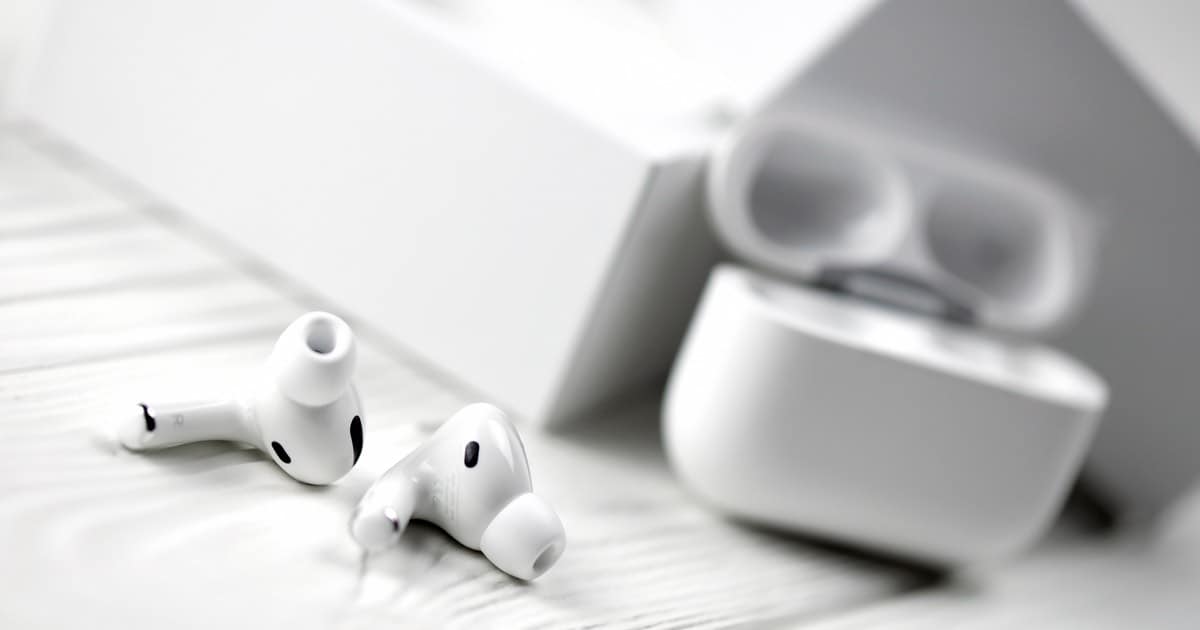Bluetooth as we know it is about to see a massive upgrade for headphones. The group responsible for the technology announced that the LE Audio spec is now complete. This means that the update may soon be available in current and new earbuds and headphones. This includes the AirPods Pro 2.
As reported by The Verge, Bluetooth LE Audio originally saw an announcement at the start of 2020. Originally, the Bluetooth SIG had hopes that supporting devices would see release before the end of that year. Unfortunately, COVID-19 brought significant delays.
Bluetooth Audio Gets Massive Upgrade with LE Audio
However, today’s completion of specifications means that manufacturers may now start adding support for the new standard to their devices. According to the Bluetooth SIG, the first compatible products should start becoming available before the end of the year.
“Today is a proud day for the Bluetooth SIG member community,” says CEO of the Bluetooth SIG Mark Powell. “Our members overcame the many challenges placed on them these past few years to complete the largest specification development project in the history of the Bluetooth SIG. LE Audio extends the boundaries of what’s possible for the wireless audio market.”
While there are several new elements to Bluetooth LE Audio, the largest one is the Low Complexity Communication Codec, or LC3. The LC3 is a more efficient way to transmit audio. This means users can have much higher audio quality at the same bit rate than the current baseline SBC codec. Users may even have slightly better audio quality at less than half the bit rate claims the Bluetooth SIG.
Additionally, a lower bit rate means lower power consumption. In theory, this can also translate to longer battery life.
Along with LC3, another key aspect for LE Audio is the ability to connect multiple audio devices to a single source. Going by the monicker Auracast, users will be able to do a multitude of things such as pairing two headphones to a single phone, or pairing numerous headphones to a single TV located in a public space.
Bluetooth SIG’s official website provides information for users on searching for audio sources like you would Wi-Fi, or connecting through a QR code or NFC-enabled surface.
Furthermore, new features also include better support for true wireless earbuds. Bluetooth LE Audio allows individual earbuds to maintain its own separate connection with the source device.
There is also hope that all of the new LE Audio features will serve as a massive benefit for future hearing aids.
What this Bluetooth Audio Update Means for Apple and AirPods
Bringing this to Apple and its AirPods, LC3 requires Bluetooth 5.2 to fully take advantage of all the new features. While no current AirPods on the market have BT 5.2, the next-generation AirPods Pro will feature the next version of Apple’s audio processor, the H1 chip. The H1 should be more than capable of handling the newest Bluetooth tech.
Combining Bluetooth 5.2 and LC3 support will give Cupertino the ability to get rid of AirPods desynchronization when a user is wearing them. It is likely the company will also be able to improve battery life in thanks to the new low-energy standard. Apple will also be able to focus on efficiency and stability for the AirPods.
Concerning the latest Bluetooth tech, it is probably unlikely that older Bluetooth devices will get to enjoy these new features. While Bluetooth SIG’s website does note that some existing devices may be update to support Bluetooth LE Audio (iOS 16 does have LC3 and low-energy audio support), it is still likely most devices will need a hardware update.
Are you excited for the new Bluetooth audio update? What are you looking forward to the most? Let us know in the comments.

“Concerning the latest Bluetooth tech, it is probably unlikely that older Bluetooth devices will not get to enjoy these new features.”
This is a very confusing statement.
Will existing (recent) devices get benefits ? Or is new hardware required ?
That would be a rather confusing typo, yes. Recent devices will potentially get the update depending on what BT chip they have. BT SIG believes many devices will be able to receive the update, but time will tell.